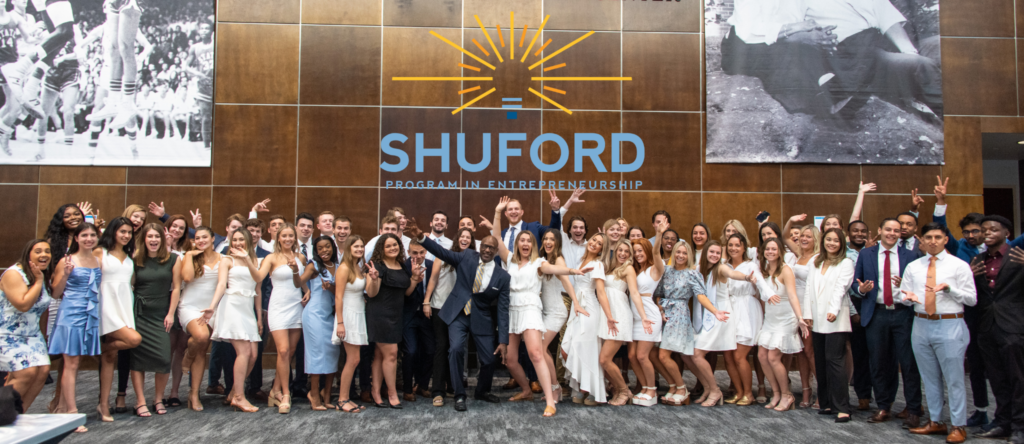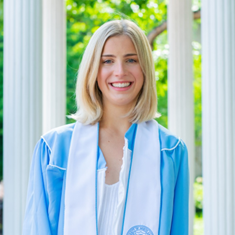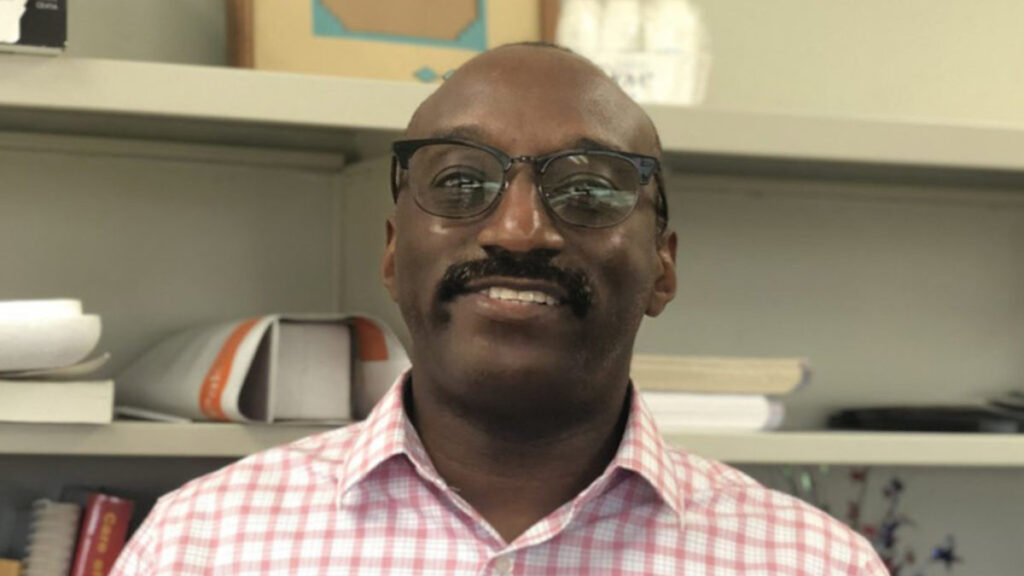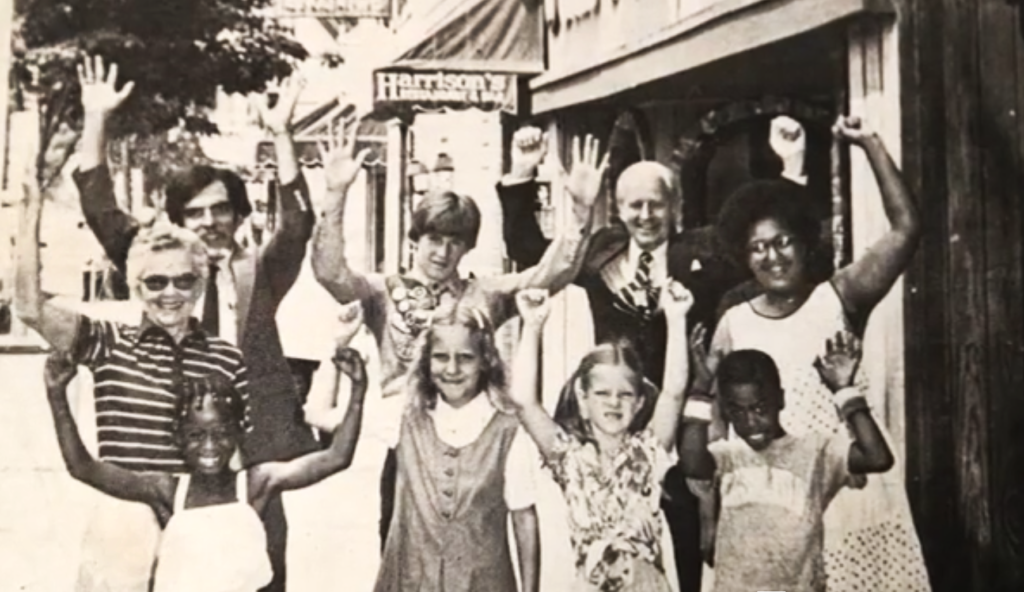Changing Life Trajectories
February 13, 2023

Nehemiah Stewart ’21, alumnus of the Shuford Program in Entrepreneurship.

The Shuford Program in Entrepreneurship empowers students to turn ideas and inspiration into action — and thanks to the transformational support of the Shuford family of Hickory, North Carolina, in 2017, this undergraduate entrepreneurship program has doubled in size during the life of the campaign, graduating more than 1,600 students with a minor in entrepreneurship.

“The first day of our Econ 393:
Practicum in Entrepreneurship
class in China, taught by Bernard
Bell, was enriching, applicable
and an immediate wake up from
the 12-hour jet lag. As we went
through the next few weeks, my
cohort of 14 students learned to
shake hands, to network, to write
and to present ourselves with
confidence. Unlike a lot of college
classes I had taken up to this
point, this course and professor
made me feel like his lessons were
aimed to help every individual in
a customized way. My classmates
and I grew to be a tightknit group,
with the room itself becoming a
temporary home away from home.
Towards the end of the course, we
even got to practice our newfound
entrepreneurial skills on UNC
alumni who lived in Shanghai.
This experience has gone on to
help me in interviews, coursework
and even day-to-day interactions
with my peers.”
– Avery Wiggs ’21, participant in the Shuford Shanghai Experience
Being based in the College of Arts and Sciences, as opposed to a business school, uniquely positions the program to draw from a diversity of thought and perspectives. Giving undergraduates — among whom are artists, musicians, anthropologists, chemists, social and political scientists and more — the opportunity to learn an entrepreneurial mindset equips them with skills for life after graduation and for a world that is constantly changing.
Open to students in any major, the program helps them transform innovative ideas into viable businesses and nonprofit ventures. In addition to learning from entrepreneurs-in-residence and guest lectures by industry experts, students participate in an internship, with signature internship programs available in Silicon Valley, Shanghai, New York, London and Research Triangle Park.
“I think entrepreneurship is a big part of the future of work. The skills of entrepreneurial thinking and problem-solving are a natural fit for the liberal arts,” said Jim Shuford ’88 (MBA ’92), CEO of STM Industries
Carolina alumnus and second-year UNC School of Medicine student Nehemiah Stewart ’21 credits the power of entrepreneurial thinking and the support of Bernard Bell ’82 (MBA ’91), executive director of the Shuford Program in Entrepreneurship, with two ventures he launched while at Carolina. The first was an app-based ride-sharing service that connected college students and faculty members for affordable carpooling on a closed network. Stewart’s most recent startup, Level the Playing Field, helps to close what Stewart calls the “opportunity gap,” by helping minority students build the professional networks and experiences that can play a make-or-break role in whether students can launch their careers at top companies.
“As a first-generation student, my confidence and knowledge of how to maximize my time in undergrad was severely lacking compared to my classmates,” said Stewart. “Although I had ideas and talent, I had no clue of how to begin my journey. The Shuford Program provided me with a clear-cut template, mentorship and the encouragement to press on to found a startup that scaled across the East Coast and enter into medical school to complete a highly revered M.D.-Ph.D., wherein I will receive my Ph.D. in neuroscience and practice clinically in neurology.”



